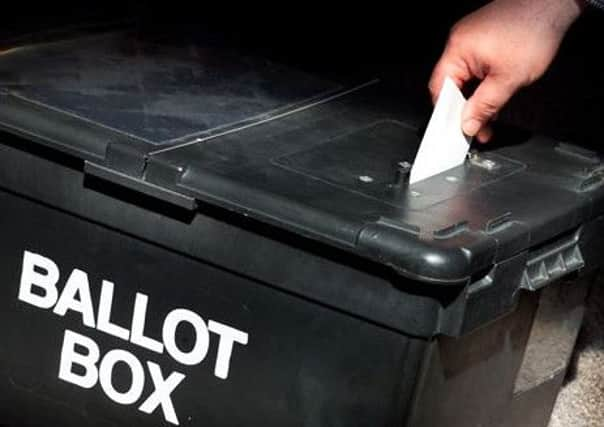Ben Lowry: There is a wide choice of candidates so non voters have little right to complain


(Read Alex Kane’s article from last year about not voting and Ben Lowry’s response to it)
He still thinks they should not.
My view on this is also fixed.
If people do not want to vote, that is fine. It means that those of us who do vote have more influence because our votes make up a higher proportion of the total votes cast than they would otherwise do.
Advertisement
Hide AdAdvertisement
Hide AdBut it is hard not to feel a sense of impatience when non voters then complain about how things are arranged in society.
They sometimes say that there is no-one to vote for.
This might be true in, for example, an American congressional election where there is Democratic Party candidate and a Republican Party candidate who have almost indistinguishable views.
But it is certainly not true in this Assembly election in Northern Ireland. There are between 12 and 18 candidates in each constituency.
Most voters have a choice of Orange and of Green, of right and of left, of environment-focused candidates and varied independents.
Advertisement
Hide AdAdvertisement
Hide AdIn fact, at times the parties are fielding candidates within the same seat who have notably different personalities and inclinations from their party colleague and running mate.
The choice in South Belfast, where I live, is bountiful. I will carefully pick my way through the candidates using most or all of my preferences.
It is satisfying, but also sobering, to know that my latter preferences might well be play a role in deciding whether someone is elected or not on a late count.
The candidates in my constituency are pretty good on the whole. But even if you feel your own local candidates are not satisfactory, every voter in NI will see a wide range of options on their ballot paper.
Advertisement
Hide AdAdvertisement
Hide AdIt is hard for anyone to argue credibly that all the candidates in front of them are equally unpalatable.
Voting in past elections has clearly changed things on a range of issues.
The most notable example is Ukip, the rise of which has led to the momentous In-Out referendum that will take place in June.
Ben Lowry (@BenLowry2) is News Letter deputy editor